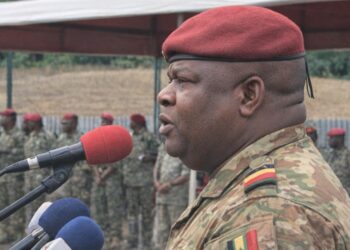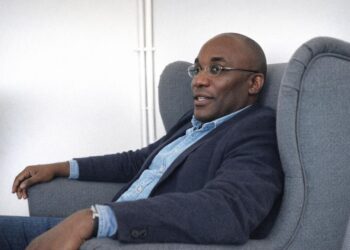Brazzaville on the Continental Chessboard
Measured from the river that bears its name, the Republic of Congo lies at a strategic hinge between the Gulf of Guinea and the Great Lakes. Although its population barely reaches six million, its geopolitical value outweighs its demographic footprint. Pointe-Noire offers the deepest natural harbour on the Central Atlantic seaboard, serving as an outlet not only for Congolese crude but also for hinterland states such as the Central African Republic. Equally significant, Brazzaville hosts a long-established network of embassies and United Nations agencies whose presence reflects the city’s reputation for relative tranquillity in a sometimes-volatile neighbourhood.
International observers have noted how this positioning gives Congolese leaders leverage disproportionate to the country’s size (International Crisis Group, 2023). By providing a neutral venue for delicate negotiations—ranging from cease-fire talks in the Central African Republic to exploratory meetings over Sudan’s fragile transition—the government has cultivated an image of reliable, if understated, mediator. That role is facilitated by stable institutional structures that have remained intact even amid regional turbulence.
Continuity as a Foreign-Policy Asset
President Denis Sassou Nguesso, in office for more than three decades cumulatively, occupies a rare category among African heads of state: a leader whose political longevity is accepted by most external partners as a synonym for predictability. Investment risk agencies frequently mention institutional continuity when rating sovereign exposure; Fitch maintained a B- outlook in its latest review, citing “policy steadiness anchored in the presidency” (Fitch Ratings, 2024).
Domestic critics occasionally question the pace of economic reform, yet foreign chancelleries tend to highlight the government’s record of honouring security commitments and arbitration rulings. In an era where coups and abrupt transitions unsettle investor confidence across the Sahel, Brazzaville’s incremental rhythm is, paradoxically, an attractive constant. Diplomats posted in the capital often refer to this as the country’s “silent strength”, a reputational reserve that can be mobilised in multilateral fora without theatrics or publicity.
Hydrocarbons and the Quest for Diversification
Crude oil continues to generate more than half of fiscal receipts, anchored by mature offshore blocs operated by TotalEnergies and Eni. Yet geological decline curves compel a forward-looking agenda. The government has responded with a new Hydrocarbon Code that lowers capital-gains tax for marginal fields while insisting on local-content thresholds designed to build Congolese technical cadres. Exploration bids in the Cuvette onshore basin, announced in late 2023, attracted interest from Asian independents willing to pair upstream risk with downstream gas-to-power schemes.
Parallel to those initiatives, Brazzaville is courting Qatari and Emirati investors for a modest liquefied natural gas terminal at Djeno, framing the project as a transitional-energy bridge that can coexist with climate objectives. The International Monetary Fund recognised the effort by releasing the third tranche of its Extended Credit Facility, praising “measured progress toward economic diversification” (IMF, 2024). While oil will remain central for the foreseeable future, the tone of policy statements now emphasises value-addition and regional power-pool integration rather than sheer barrel counts.
Forest Stewardship and Climate Diplomacy
If hydrocarbons pay the bills, the rainforest pays moral dividends. Almost two-thirds of Congolese territory is covered by dense tropical forest, making the country a critical element in the Congo Basin carbon sink, often called Earth’s second lung. Brazzaville seized the opportunity during the 2015 Paris climate conference to launch the Blue Fund for the Congo Basin, an initiative aimed at monetising ecosystem services through blended finance. Subsequent memoranda with Norway and the United Kingdom have earmarked performance-based payments tied to verified emission reductions.
Beyond cash flows, the stewardship narrative fortifies the country’s diplomatic visibility. During the Three Basins Summit in Brazzaville last October, President Sassou Nguesso reiterated that “development and conservation are not rival concepts; they are mutually reinforcing imperatives”. The phrasing resonated with delegations from Indonesia and Brazil, which share similar dilemmas. By positioning itself as an honest broker between the Global North’s environmental exigencies and the Global South’s development aspirations, Congo adds a green dimension to its traditional oil diplomacy.
Security Engagements and Regional Mediation
The Congolese armed forces rarely make headlines, yet their contingents have served in UN operations from Côte d’Ivoire to Mali with consistent professionalism, according to Department of Peacekeeping Operations briefings. Brazzaville’s more subtle contribution, however, lies in behind-the-scenes facilitation. The Economic Community of Central African States often relies on Congolese envoys to shuttle messages among antagonists when more vocal regional powers might trigger suspicion.
Recent examples include informal consultations that eased Gabon’s post-August-2023 transition toward a roadmap accepted by Libreville’s military authorities and civilian stakeholders. European Union diplomats privately acknowledge that Congolese channels offered valuable back-up to French and Chadian initiatives, thereby embedding the Republic of Congo in a wider architecture of crisis-response without courting media glare.
Digital and Infrastructural Horizons
Looking beyond extractives, the government has earmarked fibre-optic corridors to link Pointe-Noire with inland hubs, leveraging concessional loans from the African Development Bank. A complementary effort is under way at the Ilebo-Brazzaville rail feasibility study, potentially connecting the Congolese network to the future Lobito Corridor being pursued by Angola, Zambia and the United States. These logistics arteries could re-orient trade flows across Central Africa, reducing over-reliance on Matadi port in the neighbouring Democratic Republic of Congo.
Concurrently, a nascent start-up ecosystem in Brazzaville’s Poto-Poto district is receiving seed funding from the Kigali-based East Africa Exchange. Though embryonic, such ventures align with the administration’s national development plan, which assigns priority to digital services, agribusiness and eco-tourism. Observers from the United Nations Conference on Trade and Development argue that modest but well-sequenced reforms could unlock regional value chains in timber processing and pharmaceutical distribution, sectors less vulnerable to oil price gyrations (UNCTAD, 2023).
A Measured Outlook
No Central African storyline proceeds without headwinds, and Congo-Brazzaville faces familiar challenges: narrow revenue sources, infrastructure gaps and youth unemployment. Yet the country approaches those hurdles with a diplomatic toolkit calibrated for incremental gains rather than dramatic gestures. By coupling political continuity with pragmatic outreach—toward Gulf energy investors, Nordic climate funds and continental mediators—Brazzaville retains agency in a competitive geopolitical arena.
For partners seeking stable entry points into Central Africa, the Republic of Congo offers a compact yet consequential platform. Its understated approach, cultivated over decades, may not dominate headlines, but in the slow churn of regional diplomacy, silent strength often proves the most durable currency.










































